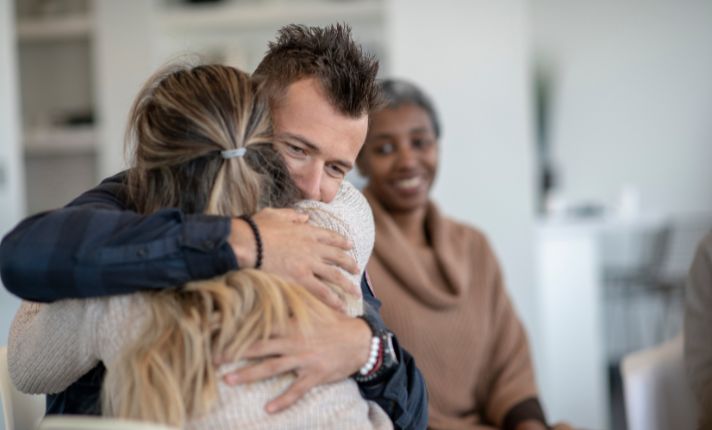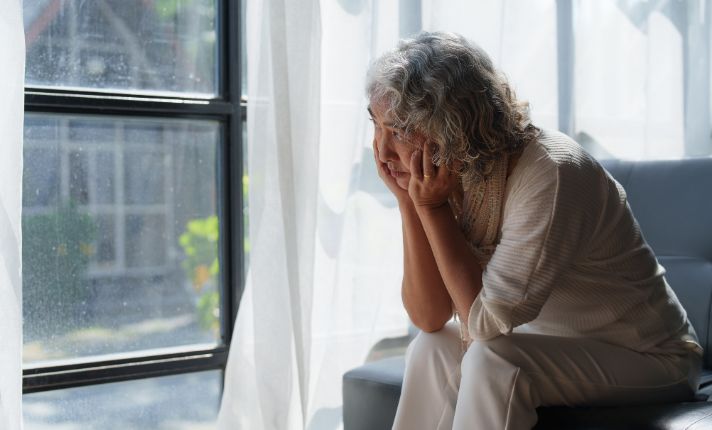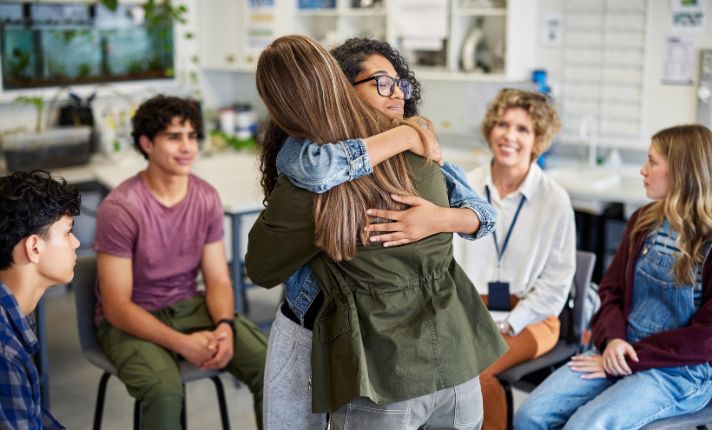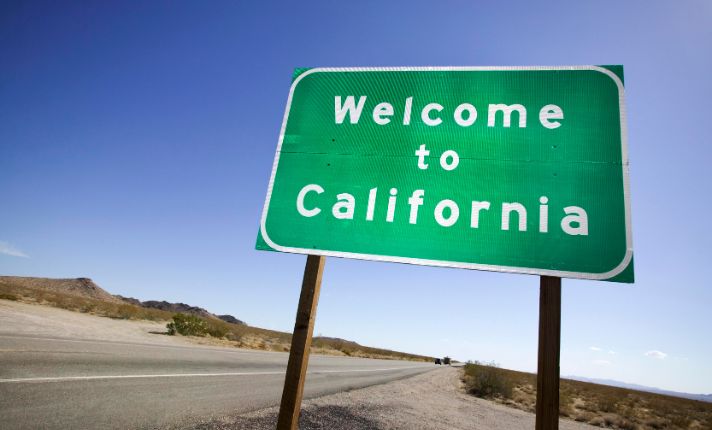Loneliness is becoming an urgent public health issue in Utah, where nearly 43% of Utahns report feeling lonely at least some of the time — a rate that surpasses the national average. But this isn’t just about feeling isolated; loneliness can have serious consequences for both mental and physical health.
Former U.S. Surgeon General Dr. Vivek Murthy has likened the health risks of loneliness to smoking 15 cigarettes a day. Left unaddressed, it can contribute to depression, anxiety, substance use, and even chronic illness.
Thankfully, many in Utah are stepping up. From state legislators to local behavioral health providers, there’s growing momentum to combat this epidemic. Together, we can strengthen communities, expand access to care, and ensure the right social supports are in place for those who need them most.
In this post, we’ll explore what’s fueling Utah’s loneliness crisis, what providers can do to help, and how tools like AxiomEHR can support your care teams.
What's Causing Loneliness in Utah?
Loneliness is increasing across all age groups in Utah, but it’s hitting the young and the elderly especially hard. As humans, we’re wired for connection—it’s a biological and emotional need of our social species. In fact, even primates show signs of loneliness that impact their immune systems and stress levels.
So what’s behind this growing disconnect? Here’s a closer look:
Fewer Face-to-Face Interactions
As technology becomes more central to our lives, in-person interactions are decreasing. Whether we’re working from home or ordering groceries online, many of us are missing the small moments of connection that once filled our days.
- Remote Work: Over the past twenty years, the number of Americans working remotely has increased by nearly 8%, reducing opportunities for workplace connections and relationship-building.
- Online Shopping: As of the end of 2024, e-commerce accounts for 17.9% of all U.S. retail sales—a 4.6% year-over-year increase. That’s fewer trips to the store and fewer familiar faces behind the counter or in the aisles.

Youth Mental Health Challenges
For young Utahns, loneliness and mental health struggles often go hand in hand. Between 2016 and 2023, diagnosed anxiety among U.S. students rose by 61%, and depression by 45%. A 2024 Wiley report found that:
- 59% of college students experience anxiety
- 43% experience depression
The report recommends more instructor support and peer-to-peer engagement—two important antidotes to loneliness.
Older Adults Are Still Isolated Post-COVID
More than half of older adults in Utah are still spending most of their time at home—less active in the community than before the pandemic. The isolation has lingered, and it’s taking a toll.
The Impacts of Loneliness on Utah Behavioral Health
Our former surgeon general was right to declare loneliness a public health crisis. Comparing its effects to smoking ¾ of a pack of cigarettes daily was a clever way to show us that loneliness isn’t just unpleasant —it’s toxic.
Studies have drawn direct connections between loneliness and other mental health disorders like depression, anxiety, and suicidal ideation.
For many individuals, loneliness can lead to unhealthy coping mechanisms, including high-risk behaviors like substance use, as they attempt to manage the emotional pain of isolation.
At the same time, those already living with mental health conditions may withdraw from others, deepening their sense of loneliness. In this way, loneliness becomes both a symptom and a driver of mental health challenges — creating a cycle that’s difficult to break.
It's Not Just in Our Heads
The effects of loneliness aren’t limited to mental health. They’ve been proven to contribute to a range of significant physical outcomes — from sleep disturbances to somatic complaints to an increased risk of stroke.
Loneliness can even inhibit (NK) cell activity which is linked to antiviral and anti-tumor defense. The body’s inflammatory response can result in a higher risk of atherosclerosis, heart attacks, neurodegenerative conditions and metastatic cancers.
Legislators have also pointed to the economic impact of loneliness, with it contributing to an estimated $6.7 billion in increased Medicare spending due to hospitalizations and nursing facility costs.
How to Deal with Loneliness: Programs & Social Supports in Utah
Fortunately, Utah is taking action. Utah lawmakers have identified loneliness as a critical public health priority, and several public and private initiatives are underway to help communities address this issue. Senator Brady Brammer has even instituted a statewide Community Health Day on the last Saturday of April.
Live On Campaign
Live On is a statewide campaign that provides education and resources and emphasizes the importance of strong relationships to combat suicide: “Close relationships with family and friends provide support, make it easier to share feelings, and show that you’re not alone. These connections can make a big difference when life feels hard.”
Visit the Live On website for tools and free downloadable resources.
Hope Squad
Hope Squad, a peer-to-peer suicide prevention program for school-aged kids, is recognized by the Suicide Prevention Resource Center’s Best Practices Registry. Since launching in Utah, the program has expanded to other U.S. states and Canada. The Hope Squad fosters connections and trust, relying on youth to reach out to struggling peers and put them in contact with trusted adults who can help.
Faith-Based Outreach
Approximately 66% of Utahns identify with a religious affiliation, making faith-based communities key allies for mental health education and training. Organizations like the Utah Faith Summit on Mental Health hold a “purposeful gathering focused on providing training and meaningful insights into mental health” annually.
Behavioral Health Agencies
Behavioral health agencies like the Huntsman Mental Health Institute (HMHI) in Salt Lake City and the Southwest Behavioral Health Center in St. George play an important role in providing services like individual and group therapy, psychiatric evaluations, and medication management. They can also help connect lonely Utahns with the right social supports to reduce isolation.

What Behavioral Health Providers Can Do
If you’re a behavioral health professional, you’re in a unique position to identify and address loneliness—even when clients don’t mention it directly. Here’s how you can make a difference:
Offer Flexible Treatment Options
- Drop-in Counseling & Open Access Hours: Lower the barrier for clients who are unsure where to start. It can be hard for clients to work up the courage to “jump in” to mental health services. Opening your office for drop-in hours reduces barriers for clients who are struggling to commit or who don’t know exactly where to start.
- Telehealth & Virtual Peer Groups: Telehealth is an indispensable tool for reaching more people — especially those in rural areas where services are hard to access, or those without transportation. Virtual peer-led support groups can also provide an even greater sense of connection and community. Organizations like The National Alliance on Mental Health (NAMI) have good examples to reference if you’re considering this option.
Screen for Loneliness
While most behavioral health intakes assess for conditions like anxiety and depression, loneliness and social isolation often go unaddressed. Incorporating validated tools such as the UCLA Loneliness Scale into your intake and assessment workflows can help ensure treatment planning reflects the full spectrum of a client’s social and emotional needs.
Build Client Engagement & Continuity of Care
Loneliness often worsens when care is episodic or fragmented. Your organization can boost continuity by assigning dedicated case managers or “care navigators” who stay with clients throughout their treatment journeys.
Identify opportunities for relationship-building along the way:
- Check in during holidays or difficult seasons
- Invite clients to community events
- Arrange transportation to group sessions
Mobile outreach units and regular wellness check-ins (even texts!) can offer consistent, low-pressure connection.
Create Opportunities for Social-Emotional Learning & Skill Building
Many lonely individuals benefit from structured social learning. Group therapy is a great setting for practicing relational skills and therapy programs can focus on:
- Building and maintaining friendships
- Navigating conflict
- Setting boundaries
- Re-entering social settings post-hospitalization or post-crisis
Adult day programs can also include role-playing exercises or community outings that encourage safe, supported social practice.
How AxiomEHR Supports Utah Providers Tackling Loneliness
At AxiomEHR, we know how hard clinicians work, and we think technology should make that work easier, not harder. That’s why our platform combines intelligent automation with an intuitive, user-friendly design—created to support your team every step of the way.
- Voice-to-text notes cut down typing so providers can focus on care—even with growing caseloads.
- Real-time access to centralized patient records and treatment plans creates smooth communication among care teams for better wraparound services.
- Integrated reporting and analytics capabilities let providers monitor client engagement metrics and identify patterns that may indicate disengagement or the need for intervention.
- Flexible scheduling tools with automated reminders help reduce no-shows and increase face time with peers and providers.
Reconnecting Utah, One Relationship at a Time
Loneliness is a growing public health concern in Utah—but it’s not insurmountable. With the right support—flexible care, trusted tech, and strong community roots—you can help Utahns feel seen, heard, and connected.
Learn more about how AxiomEHR supports the work of mental and behavioral health professionals in Utah.
We care about you, so you can care for your clients. Let’s work together to connect your community.



